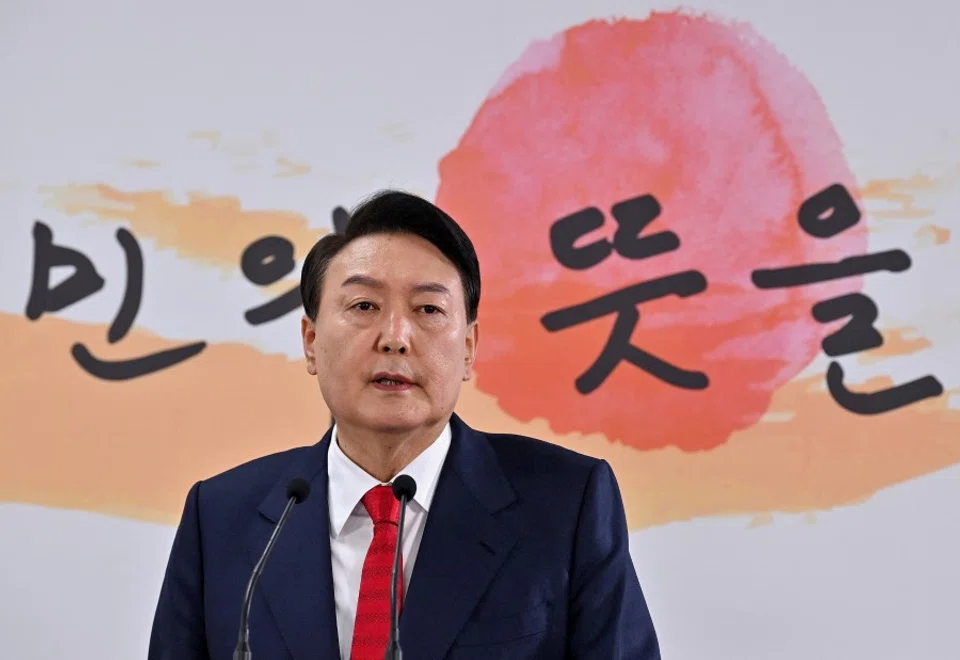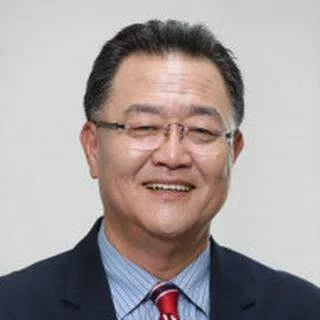South Korea's new president needs to avoid predecessor's mistakes and reframe foreign policy priorities
South Korean academic Kang Jun-young notes that the incoming Yoon Seok-youl administration in South Korea will have to rectify several diplomatic missteps of the previous administration, including by restoring ties with Japan and adjusting its policies towards China and the US, while dealing with the nuclear issue with North Korea. Will Yoon's administration be able to juggle all this while maintaining its national dignity and not giving in to external pressure?

The world is facing unprecedented difficulties - the pandemic is pressing on to its third year, the US-China conflict is growing, Russia is attacking Ukraine, and national egoism is running rampant amid talks of building a new post-pandemic international order.
External and domestic challenges
Although South Korea has established an alliance with the US, the country is facing concerns on a few fronts: north of the Korean peninsula is North Korea, the most war-ready country in the world equipped with a nuclear arsenal; to the west is China, which is emphasising the China dream and does not shy away from going up against the US; to the east is Japan, the third largest economy in the world; and Russia, which dreams of resurrecting the glory of the former Soviet Union and is now trying to change the current US-China bipolar structure to a US-China-Russia framework. These political realities all highlight South Korea's geopolitical dilemma.
Given the current landscape, South Korean president-elect Yoon Seok-youl - who won the presidential election by a narrow margin on 9 March - also faces several difficulties. Domestically, the priority is to achieve sustainable growth and social unity, as well as deal with the quagmire that is the North Korean nuclear issue; externally, there are the issues of ensuring South Korea's diplomatic space amid the US-China conflict, maintaining South Korea-China relations, resolving anti-Chinese sentiments that have become more prominent in recent years, restoring currently nonexistent relations with Japan, and handling issues of economic security due to changes in the global supply chain, which lately has been more pressing than military security. All this calls for the Yoon administration to adopt a different strategy from its predecessor.

Lessons from the Moon administration
Given the situation, the diplomatic direction that Yoon stresses for the new administration is for South Korea to become a global hub that contributes to freedom, peace and prosperity, based on dignified and strong security. In particular, the focus is for South Korea-US relations to move beyond traditional military cooperation and to rebuild a strategic comprehensive alliance that includes security and economy. Conversely, when it comes to China, South Korea needs to build a relationship based on mutual respect, and call on China to play a "responsible role".
Following Yoon's comments about restoring and rebuilding the South Korea-US alliance, China has expressed its concerns. In China's view, unlike the Moon Jae-in administration, the Yoon administration might join the Quadrilateral Security Dialogue and rebuild the South Korea-US-Japan alliance on the basis of the South Korea-US alliance, and also strengthen its cooperation with the US's Indo-Pacific strategy.
Yoon and his diplomatic team believe that their diplomatic direction is to rectify the unconventional diplomacy that has been bent out of shape over the past five years...
Furthermore, South Korea has become a part of the US's "democratic alliance", presenting a united front in containing China in terms of the US-led global supply chain restructuring and affirmation of universal values such as democracy and human rights. Yoon has spoken on the phone with all three leaders of the US, China and Japan after being elected. He spoke with Chinese President Xi Jinping on 25 March.
Yoon and his diplomatic team believe that their diplomatic direction is to rectify the unconventional diplomacy that has been bent out of shape over the past five years, and straighten it out again. From that perspective, South Korea has experienced many diplomatic faux pas in the past five years, including the North Korea nuclear issue - incumbent President Moon Jae-in even handed over the reins to North Korea towards the end of his term, only to be left completely high and dry by North Korean President Kim Jung-un.

South Korea's ambiguous stand towards both the US and China is not well received by either party, and there seems to be no progress in its long-stalled relations with Japan. This, coupled with a sense of economic insecurity caused by uncertainty over the supply of raw materials, have led to a failure to take proactive measures in its response, resulting in economic instability.
So, the new government will need to start by reflecting on the past diplomatic stance, objectively examining and analysing the facts, and take the diplomatic policy of the Moon administration as a lesson in what not to do.
Reframing relations with North Korea, China and Japan
Firstly, the new government will need to correct the parochial perspective of defining international relations based on South Korea-North Korea relations. No one is against the establishment of a permanent peace mechanism in the Korean peninsula, and while there has been no conflict between the north and the south during the reign of the current administration, the peace process on the Korean peninsula ultimately failed.
In particular, during the period when a formal end-of-war declaration was being considered, North Korea strengthened its nuclear and missile capabilities and has already conducted more than a dozen missile tests this year alone. (NB: As of 24 March, The Guardian and Reuters reported that North Korea has launched 13 rounds of weapons so far in 2022.) Hence, it is likely that the new administration's North Korea policy will be formed in line with the US's policy.
... because the South Korean government wanted to maintain the momentum of the Korean peninsula peace process, it had unrealistic expectations of China and adopted a somewhat modest foreign policy towards China.

Secondly, the new government will need to establish new paradigms amid US-China rivalry. As US-China competition moves beyond a trade war and turns into a US-led battle over democracy and value systems, South Korea, as an ally of the US, is finding itself in a predicament. The positions that South Korea can take are certainly limited because it relies on the US for security and has important economic exchanges with China. But because the South Korean government wanted to maintain the momentum of the Korean peninsula peace process, it had unrealistic expectations of China and adopted a somewhat modest foreign policy towards China. Undeniably, South Korea-US relations suffered a hit during this process, which is why Yoon sees rebuilding the South Korea-US alliance as a top priority.
Thirdly, as China is an important country to South Korea, it is necessary for South Korea to adjust its foreign policy towards China as well. Yoon's diplomatic team believes that the Moon administration had overly high expectations of its bilateral economic cooperation with China, as well as China's influence on North Korea. This led them to adopt a policy that was cautious of angering China and as a result, South Korea oddly danced to China's tune in almost all aspects of bilateral cooperation.
Yoon's team also believes that by merely stressing on its "constructive role" yet adopting a passive attitude towards North Korea, China is not making a substantial impact on the issue but is instead actively curbing South Korea's tilt towards the US. While South Korea unduly considers China's core interests, China does not extend the same courtesy to South Korea. Thus, Yoon's foreign policy will not be a matter of being pro- or anti-China, but of changing perceptions.
The new government must focus on the fact that it is the 10th largest economy in the world and its Korean wave (Hallyu) has become an international cultural icon of the 21st century.

Lastly, historical feuds between South Korea and Japan over forced labour and "comfort women" have also been used against each other as a tool to create opposing sentiments in the domestic politics of both countries, making it difficult to achieve a breakthrough in their relations.
Notwithstanding, South Korea and Japan share the values of liberal democracy and market economy, democracy and human rights. Yoon's diplomatic team believes that the South Korea-US-Japan trilateral cooperation framework based on the South Korea-US and US-Japan alliances must not be hindered by historical problems because blaming each other would only deepen the wound.
If Yoon can separate historical problems from practical cooperation, he can adopt a "dual-track strategy" in which historical problems are properly discussed while practical cooperation is actively pursued.
While the incoming South Korean government has its work cut out for it, it is no longer "a shrimp swimming among whales". The new government must focus on the fact that it is the 10th largest economy in the world and its Korean wave (Hallyu) has become an international cultural icon of the 21st century. South Korea no longer needs to degrade itself or "self-objectify" to seize international space. It should act to provide leadership to the international community and exercise a dignified foreign policy.





![[Photos] Fact versus fiction: The portrayal of WWII anti-Japanese martyrs in Taiwan](https://cassette.sphdigital.com.sg/image/thinkchina/3494f8bd481870f7c65b881fd21a3fd733f573f23232376e39c532a2c7593cbc)